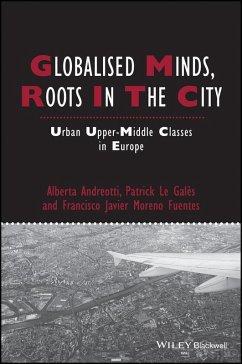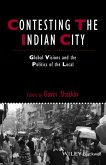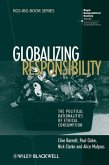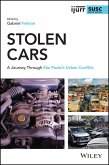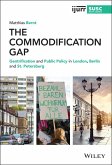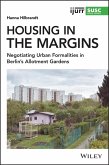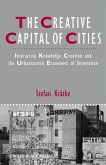Dieser Download kann aus rechtlichen Gründen nur mit Rechnungsadresse in A, B, BG, CY, CZ, D, DK, EW, E, FIN, F, GR, HR, H, IRL, I, LT, L, LR, M, NL, PL, P, R, S, SLO, SK ausgeliefert werden.
-- Loretta Lees, Professor of Human Geography, University of Leicester
'This brilliant book is a much needed contribution, as it moves ongoing conversations about globalization and its effects to a whole new level of theoretical sophistication and empirical rigor. Through a meticulous and detailed examination of evidence, the authors reveal how and to what extent the European upper middle class has become transnational (the answer: less than predicted by speculating social theorists). This powerful contribution will certainly leave its mark on the study of contemporary inequality, transnationalism, spatial transformations, and social change in European societies.'
-- Michele Lamont, Harvard University
'Many social theorists have become enamoured with the idea that a global capitalist class has emerged and with it, a new global society. The agents of this process are assumed to live nowhere and have allegiance to no one but themselves. This wonderful book skewers these arguments by actually talking to people who appear to be this vanguard (managers having lived and worked abroad in four European cities) and reporting how they feel, act, and think, about the places where they live. Suffice it to say, the evidence for these broad claims is lacking. The image one gets is of a European upper middle class, one whose transnationalism is restricted in time and space to Europe. As such, their values and behavior are similar to middle class people everywhere. They like the variety and tradition of the places they live and want to preserve it, but at the same time value the freedom of modern life whereby people can pursue opportunity and live enlightened lives.'
-- Neil Fligstein, Department of Sociology, University of California
'This stunning comparative study offers the most sensitive and systematic analysis yet of the ongoing role of the city in the hearts and minds of the European upper middle classes. In refuting simplistic arguments about the rise of global mobility, it demonstrates the appeal of the urban in the lives of privileged social groups. A compelling analysis which must be read by all urban scholars and all those interested in class and inequality.'
-- Mike Savage, Martin White Professor of Sociology, Head of Department, LSE

